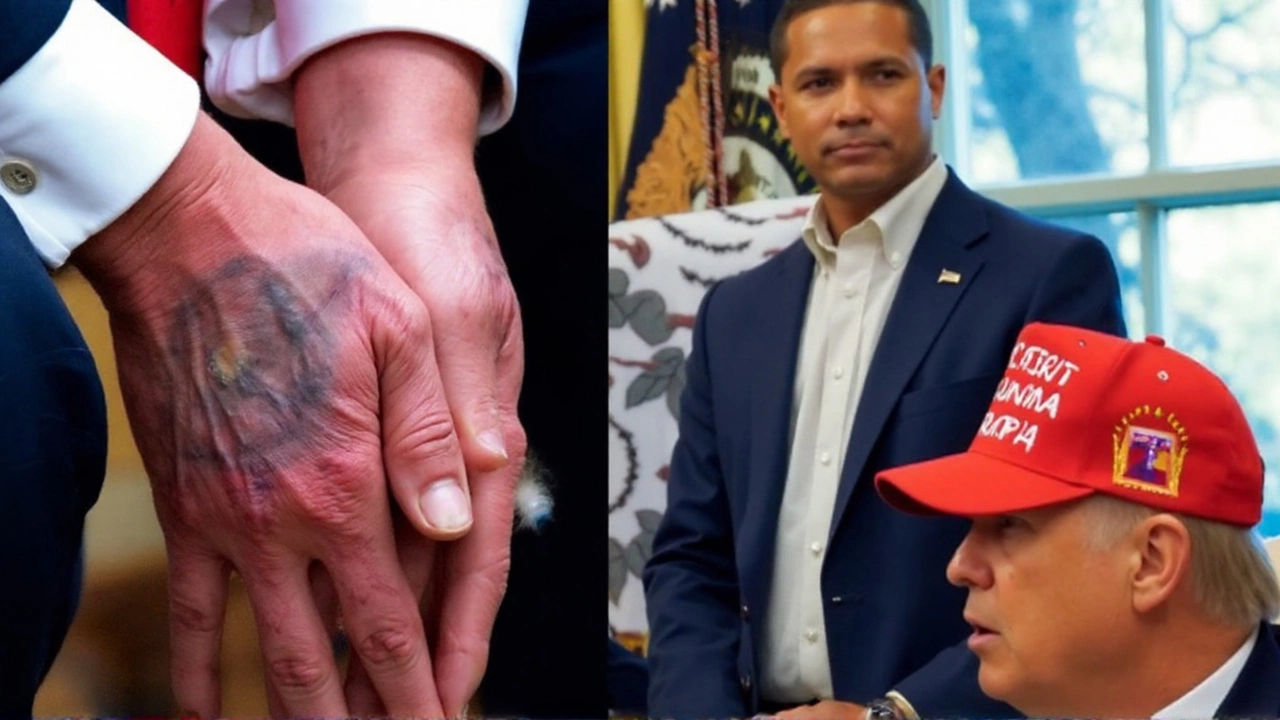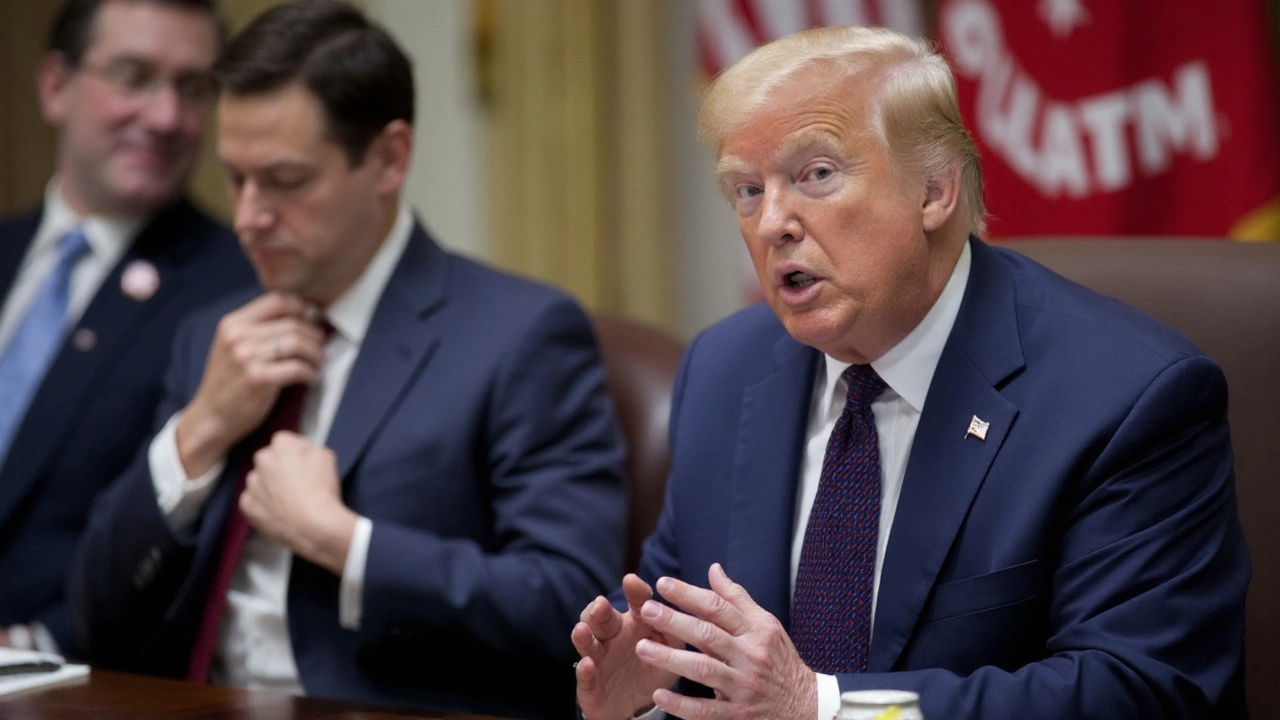A sweeping vow to seek death sentences in D.C.
President Trump said Tuesday his administration will seek capital punishment in every murder case arising in Washington, D.C., casting the policy as both punishment and deterrent. “If somebody kills somebody in the capital, we’re going to be seeking the death penalty,” he told reporters and cabinet officials, calling the approach “a very strong preventative.”
The pledge lands in a city that abolished capital punishment more than four decades ago and has not executed anyone since 1957, when Robert Carter died in the electric chair after killing an off-duty police officer. The Supreme Court effectively halted executions nationwide in 1972 in Furman v. Georgia, and while the court permitted new capital statutes under tighter rules in 1976, the D.C. Council formally repealed the penalty in 1981. District voters rejected it again in a 1992 referendum placed on the ballot by Congress.
Trump’s announcement is the sharpest signal yet that the White House plans to make the nation’s capital a high-profile test case for an aggressive federal anti-crime strategy. It follows a crime-focused executive order signed Monday that directs the defense secretary to prepare National Guard plans for rapid deployment to quell unrest, part of a broader effort to tighten federal responses in the District.
The timing was notable. Washington had just closed out a 12-day stretch without a homicide during the federal crackdown—an unusual run for a city still wrestling with gun violence—before an early morning killing of a 31-year-old man in Southeast snapped the streak, police said.
Trump has long backed capital punishment and, during his previous term, restarted federal executions after a 17-year pause. Between July 2020 and January 2021, the federal government put 13 inmates to death at the Terre Haute facility in Indiana, more than all 50 states combined over that span. President Biden opposed the practice and his Justice Department halted federal executions in 2021 pending review of protocols.
The new promise—seeking death in all D.C. murders—would go far beyond those prior steps. It also raises the central question: Can the administration do this without Congress changing the law?

Can the White House actually do this? The legal roadblocks and what would have to change
The District of Columbia’s criminal system is unusual. Local murders are prosecuted not by a city district attorney but by the U.S. Attorney’s Office for D.C., a federal entity housed in the Justice Department. Trials happen in D.C. Superior Court under the D.C. Code, not federal criminal law, unless prosecutors charge specific federal crimes. That structure gives the administration influence over charging decisions—but not a blank check.
Here are the biggest hurdles:
- D.C. law does not allow capital punishment. Prosecutors cannot seek a sentence that a statute doesn’t authorize. To impose death for local murders, Congress would have to reinstate the penalty in the D.C. Code or pass a new federal statute covering murders in the District with capital exposure.
- Not every homicide can be federalized. DOJ can bring federal capital charges only where Congress has created a capital offense—think killings tied to terrorism, drug kingpin cases, carjackings resulting in death, murders on federal property, or killings during certain firearms crimes. A blanket promise to seek death “in every D.C. murder” exceeds the current menu of federal charges.
- Only Congress can rewrite D.C.’s criminal penalties. Under the Constitution, Congress has sweeping authority over the District. It could pass a law making all murders in Washington, D.C., federal crimes carrying possible death, or it could reinstate capital punishment in the D.C. Code. The President cannot do that by executive order.
- Justice Department protocols still apply. Even in eligible cases, DOJ’s Capital Case Section conducts an internal review, the U.S. Attorney submits a memorandum, and the attorney general makes the final call on whether to seek death. A presidential directive can set priorities, but the AG’s approval is required case by case.
- Jury selection will be hard in D.C. In a capital trial, jurors must be willing to consider death as a possible sentence. In a city that has repeatedly rejected the death penalty, finding a “death-qualified” jury could be slow and contentious, increasing the chances of delays or a venue change fight.
Put simply, to fulfill the policy as stated, the administration would likely need new legislation. Congress could take several routes:
- Amend the D.C. Code to reintroduce capital punishment for first-degree murder with statutory aggravators and the procedural safeguards the Supreme Court requires.
- Create a new federal offense covering murders “within the District of Columbia,” with penalties up to death, invoking Congress’s plenary power over the capital.
- Expand existing federal capital statutes to capture a wider array of homicides committed in Washington, though that would raise complex venue and federalism questions unique to the District.
Each path would invite challenges. Defense lawyers would argue that Congress is attempting an end-run around the District’s home-rule system and the will of its residents. Civil rights groups would contest both the process and the outcome, citing racial disparities and due process concerns in capital charging and sentencing.
Trump’s allies frame the move as overdue. They argue the District’s unique status justifies a firmer federal hand, pointing to spikes in violent crime in recent years. In 2023, D.C. recorded 274 homicides—the highest since 1997—before a decline began the following year. Supporters say the capital city should not be a sanctuary from the toughest penalties available under federal law.
Opponents see something else. Congresswoman Ayanna Pressley blasted the proposal, invoking Trump’s 1989 call for the execution of the five teenagers later exonerated in the Central Park jogger case. She called capital punishment “flawed and deeply racist” and said it “has no place in any society.” Advocacy groups warn the promise fits a broader blueprint to expand federal arrest and detention powers in ways that could chill protest and weaken due process.
Whether the policy would deter murders is another open question. Research on deterrence has been debated for decades, but a 2012 National Research Council review found prior studies claiming a deterrent effect were methodologically unreliable and “should not be used to inform policy.” Many criminologists point instead to certainty of arrest and swift resolution—clearance rates, witness cooperation, focused policing—as the bigger drivers of violent crime trends.
Even if Congress acted, capital prosecutions are slow. Building a death-eligible case requires meticulous mitigation and mental health investigations, expert testimony, and two-phase trials with penalty hearings. Appeals stretch for years through federal courts. Since Ring v. Arizona (2002), juries—not judges—must find any fact that makes a defendant eligible for death, driving more complex proceedings. The Supreme Court has also carved out categorical bans: no death for juveniles (Roper v. Simmons), for people with intellectual disability (Atkins v. Virginia), or for non-homicide crimes against individuals (Kennedy v. Louisiana).
There are practical issues too. The federal government conducts executions in Terre Haute, Indiana, under a single-drug pentobarbital protocol that’s been challenged repeatedly in court. The Justice Department’s 2021 moratorium on federal executions, issued by Attorney General Merrick Garland to review the process, would need to be lifted or revised for executions to restart—even if juries in D.C. imposed new death sentences.
Trump’s team has hinted at a wider crime-control architecture in the District. The executive order directing Pentagon planning for National Guard deployments signals a readiness to move quickly during unrest. While National Guard units can support civil authorities under state or federal control, routine law enforcement by the military faces legal guardrails, including the Posse Comitatus Act, unless specific exceptions apply. Any assertive use in the city would draw instant scrutiny.
In D.C., the policy would fall to a small set of key players:
- The U.S. Attorney for the District of Columbia, who prosecutes both local and federal crimes, would decide when to bring federal charges that carry death exposure and submit requests for capital authorization to DOJ.
- The Attorney General would decide whether to authorize death in each case and defend the policy in court.
- Congress would determine whether the District’s code is rewritten or whether new federal crimes are created for murders in Washington.
- Federal judges in D.C. would preside over any capital trials brought under federal law; D.C. Superior Court judges would remain central for non-federalized murders.
Local leaders are likely to resist. The D.C. Council has opposed capital punishment for decades, and prior attempts by Congress to override the city’s criminal justice choices—most recently in debates over sentencing reforms—have triggered fierce home-rule pushback. Any bill to reimpose death in the District would reopen those fights, with national political stakes layered on top.
For victims’ families, the promise brings mixed expectations. Some who have pushed for tougher sentencing could welcome a tool they believe signals accountability. Others fear the long, emotionally draining capital process, which can keep cases active for decades and postpone closure, compared with life without parole.
On the ground, detectives and prosecutors say the faster wins often come from basics: clearing cases, getting witnesses to testify, shutting down retaliatory cycles. In recent years, D.C.’s homicide clearance rates have fluctuated, and police have highlighted witness intimidation as a chronic barrier. None of that changes with a death-eligible statute; it just changes the maximum penalty at the end of the line.
There are constitutional minefields as well. Defense attorneys will raise McCleskey v. Kemp (1987) to argue that racial disparities taint the system, even as the Court has set a high bar for such claims. Litigators will test how any D.C.-specific capital regime interacts with the city’s jury pool, venue rules, and the Sixth Amendment’s fair cross-section requirements. Expect challenges to methods of execution, too, which have spawned years of litigation in state and federal courts.
Resource costs loom in the background. Capital cases are significantly more expensive than non-capital murder prosecutions because of mandated defense teams, expert funding, and extended trials. Public defender offices in the District and federal capital defense units would need staffing and budget increases to meet constitutional requirements for effective counsel. The Justice Department would face similar scaling demands on the prosecution side.
If Congress takes up legislation, the debate will likely telescope into a broader referendum on crime, punishment, and the District’s self-government: Should Washington set its own criminal penalties, or should Congress and the White House dictate them? Does making death available send a deterrent message—or does it distract from the daily work of solving cases and reducing gun violence?
In the short term, the Justice Department could still pursue death in a narrow set of D.C. cases by charging federal statutes that already authorize it, such as killings tied to drug trafficking, terrorism, carjacking resulting in death, or murders on federal property. That would test jury attitudes, force early court rulings on venue and voir dire, and preview how a broader regime might function.
Key unknowns to watch next:
- What guidance the attorney general issues to the U.S. Attorney for D.C. about capital authorization requests.
- Whether the White House asks Congress to pass a bill explicitly reintroducing the death penalty for the District—or opts to expand federal capital statutes instead.
- How quickly civil liberties groups file suit and what courts do with early challenges.
- Whether the Pentagon planning for National Guard deployments intersects with the criminal justice push in the city.
Trump’s promise is simple to say and hard to carry out. For now, it sits at the crossroads of politics, law, and the District’s unique status—where a federal prosecutor already handles local murders, but the ultimate punishment remains off the books unless Congress rewrites them.
